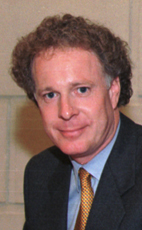Mr. Speaker, I rise on a point of order.
Allow me first of all to convey my respects and my congratulations to you on your election. For reasons that I will not mention, I was not in the House at the time when you were elected to this office. Needless to say, I am proud to extend to you, on behalf of the Conservative caucus in this House, our support and, above all, to wish you all the best for the coming Parliament.
I have chosen and asked to speak today on an issue which will impact on our rights and privileges during this Parliament. Part of yesterday's Throne Speech reads as follows:
The Government is committed to enhancing the credibility of Parliament. Changes will be proposed to the rules of the House of Commons to provide Members of Parliament a greater opportunity to contribute to the development of public policy and legislation.
Mr. Speaker, on behalf of my caucus and my Party, let me tell all the members of this House that we fully endorse such a statement and that we intend to support the government in this regard.
In respect to the statement made by the government in the speech from the throne, I want to take advantage of the fact that on the very first day that we sit we have very deep and very real preoccupations relating to our rights and privileges in this House.
I am rising on a point of order today not because I am asking for a ruling from the House, but I want to attract your attention, Mr. Speaker, and the attention of members to a few facts relating to our position on this side.
Even though the election campaign rendered a result that was quite clear in regard to the previous government, the results, if examined objectively for what they yielded for us on an electoral basis, were such that the Reform Party that sits with us in this House obtained approximately 19 per cent of the vote and has a representation of 52 members.
The Official Opposition with 14 per cent of the vote has 54 members. The Progressive Conservative Party of Canada with 16 per cent of the vote has only two members. Our colleagues in the New Democratic Party, who I think have approximately 9 per cent of the vote, have nine members.
This, Mr. Speaker, as you know, creates a situation where-

